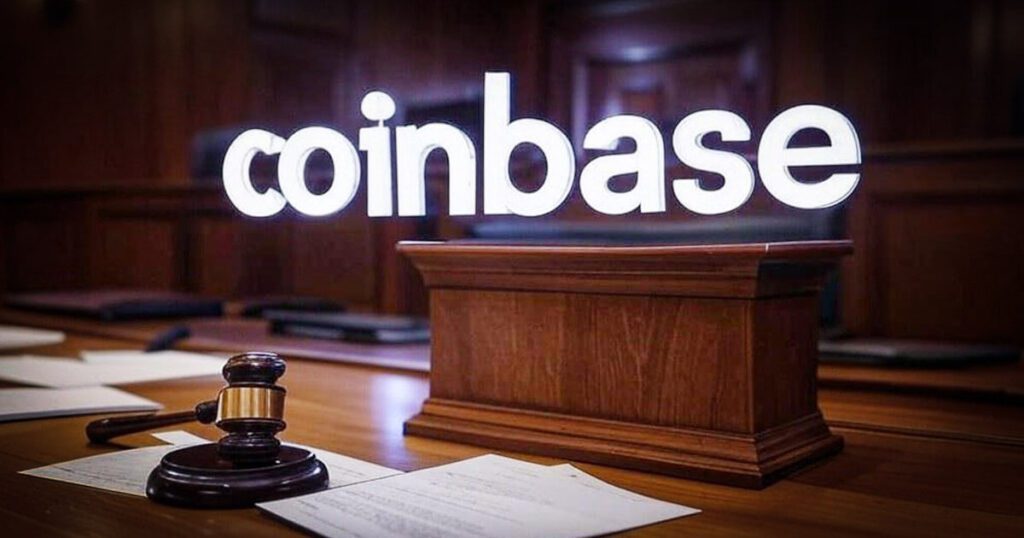
The U.S. Court of Appeals for the Third Circuit granted Coinbase a partial victory in its dispute with the Securities and Exchange Commission (SEC) in a January 13 decision.
The panel of judges, led by Circuit Judge Ambro, found the SEC’s reasoning “arbitrary and capricious” under the Administrative Procedure Act (APA), a standard requiring agencies to adequately explain their actions .
TThe court opinion also criticized the SEC for failing to adequately justify its decision to deny Coinbase’s request for more explicit crypto rules. As a result, the regulator will have to justify its avoidance to provide clear rules for crypto companies in the United States.
Looking for clear rules
Coinbase has asked the SEC in 2022 to adopt new rules tailored to the unique nature of digital assets such as cryptocurrencies and tokens. The company argued that the existing securities legal framework was “fundamentally incompatible” with blockchain technology and that it was economically impractical to comply with it.
The exchange highlighted challenges such as decentralized issuers and non-investment uses of many digital assets, including transaction fees and network governance.
The SEC denied the petition in December 2023, offering only a brief explanation. She said existing laws were adequate and argued that her priorities lay elsewhere, including enforcement and progressive measures.
Coinbase then requested a court review, seeking to force the SEC to provide further justification.
Partial victory
In his view, the Third Circuit did not go so far as to order the SEC to initiate rulemaking, a victory for the agency’s discretion. However, the court concluded that the SEC’s denial of Coinbase’s request lacked sufficient motivation.
The court emphasized that while regulatory agencies have wide latitude, their decisions must be based on a “discernible path” of logic.
The court added:
“The SEC is repeatedly suing crypto companies for not complying with the law, but it won’t tell them how to comply. This reservation creates a serious constitutional problem; due process ensures fair notice.
The court also said the regulator does not provide advice on due process requirements and offers no meaningful guidance on which crypto assets are considered securities.
Additionally, the decision calls into question how the SEC views stablecoins, utility tokens, and major cryptocurrencies such as Bitcoin (BTC) and Ethereum (ETH). He added:
“Existing rules do not align with blockchain technology, but the SEC refuses to recognize this. Its official silence and contradictory unofficial signals breed uncertainty. Crypto issuers and exchanges should cross their fingers and pray that the agency doesn’t foul them.
The community welcomes the decision
Coinbase General Counsel Paul Grewal common legal victory and appreciated the court’s “careful consideration.”
Jake Chervinsky, General Counsel of Variant Fund, felicity the exchange and considered the development a “big victory” because the partial grant came from a circuit court. The decision sets a binding precedent for future crypto cases.
Ji Kim, CEO of the Crypto Council for Innovation (CCI), also felicity Coinbase and highlighted a amicus brief filed by CCI in this case.
The document stated:
“Without guidance from the SEC, industry participants must try to determine whether they should register as broker-dealers and, if so, what assets they can manage in the registered entity.”
Katherine Minarik, Legal Director of Uniswap Labs, pointed out that two actions in the Third Circuit elicited an appropriate response from the SEC – “as it should.”
Alex Thorn, head of research at Galaxy Digital, commented that the decision was “huge” and “a rejection of the SEC’s position in a myriad of cases” that no regulation is required beyond the existing legal framework.
While the ruling does not require the SEC to develop rules, he noted that it requires a full explanation, which Thorn said is a “pretty big slap in the face.”

